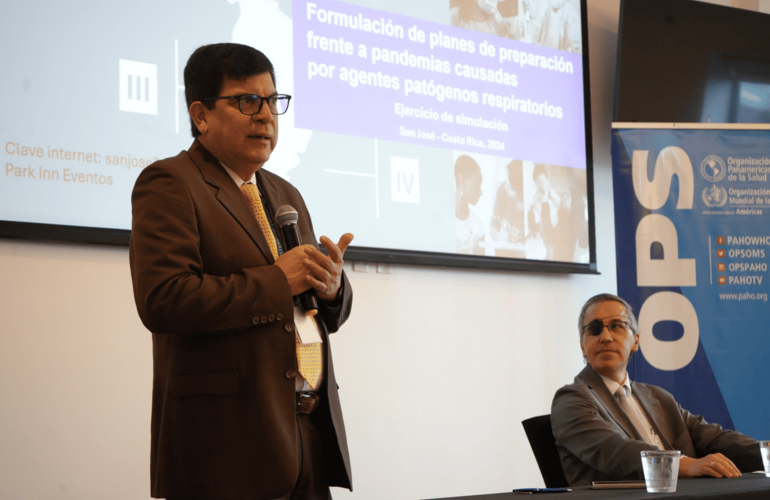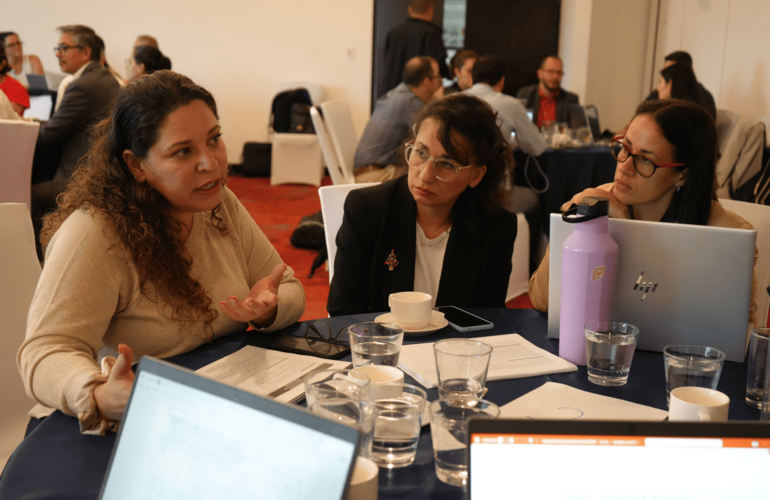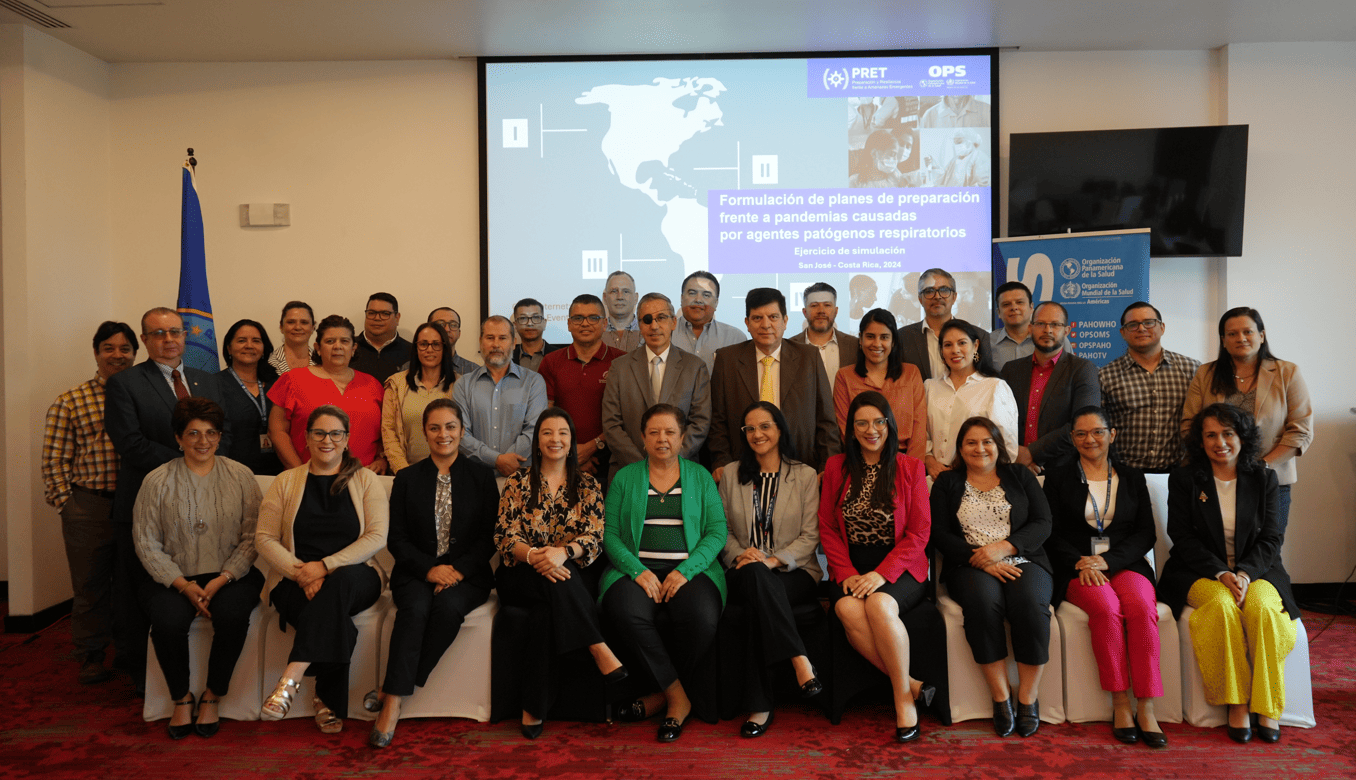
San José, December 17, 2024 (PAHO) – From November 25-27, 2024, Costa Rica conducted a simulation exercise based on its updated National Pandemic Preparedness Plan, with the objective of evaluating and strengthening its capacity to respond to respiratory pathogens. This activity, organized with technical support from PAHO/WHO, brought together key actors from different sectors to test the plan's mechanisms and propose improvements aligned with the Preparedness and Resilience for Emerging Threats initiative (PRET).
The exercise used a hypothetical scenario that simulated the evolution of an influenza outbreak from its detection in another country to reach levels of widespread community transmission in Costa Rica. The activities were structured in four operational stages: outbreak emergence, sustained community transmission, generalized transmission and stabilization. At each stage participants had the opportunity to analyze strategic decisions, evaluate responses and hold constructive discussions.
During the exercise, several key aspects such as emergency coordination between sectors, cross-border health management, access to countermeasures (such as vaccination), collaborative surveillance and risk communication were addressed. This practical approach identified areas for improvement, clarified roles and responsibilities, and strengthened the operational triggers of the preparedness plan.
One of the central goals of the simulation exercise was to ensure that the recommendations from the 2021 simulation exercise were effectively integrated, especially in aspects related to risk communication and community engagement (RCCE). In addition, the analysis included a detailed review of the five key components of PRET to ensure alignment with international standards.
The exercise reinforces Costa Rica's commitment to health emergency preparedness, consolidating its leadership in the region. It also highlights its role in the development and application of global tools such as PRET, contributing to the strengthening of health security and the well-being of its population in the face of future pandemic threats.






